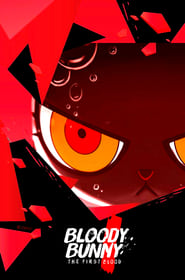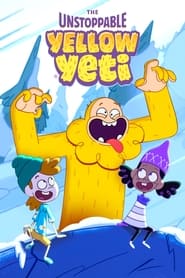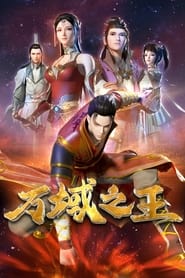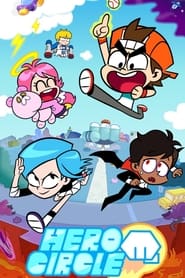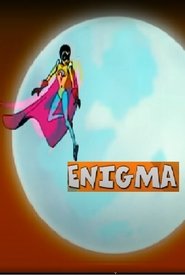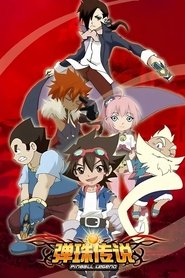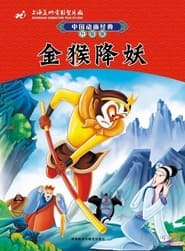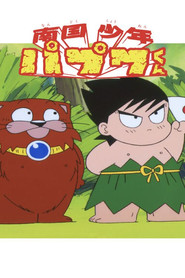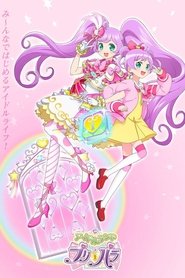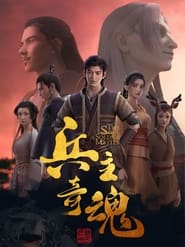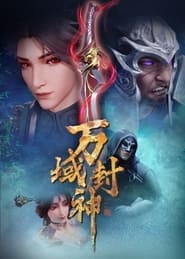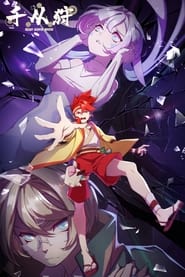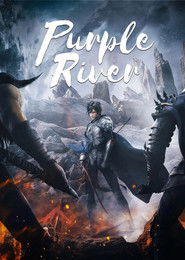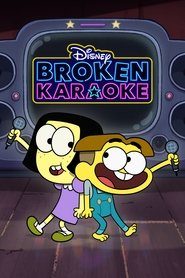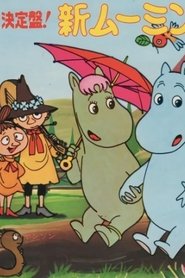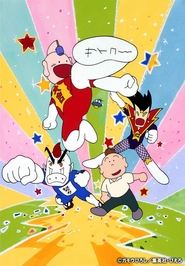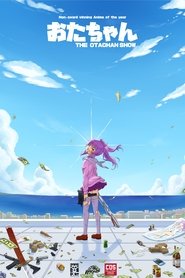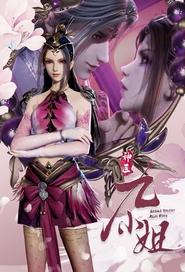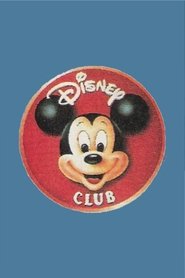Top Rated Animation TV Shows - Page 339
-
Bloody Bunny The First Blood
2015
star 7.5Bloody Bunny is a knife-wielding rabbit with the vengeful soul of a quiet little girl who travels on a perilous journey across a dark land to find and destroy her malevolent creator and return to a human body - all whilst kicking the crap out of and killing a lot of monsters along the way. -
The Unstoppable Yellow Yeti
2022
star 4.5Small town life above the Arctic Circle snowballs out of control when an enormous, outrageous, and unstoppable Yellow Yeti arrives in town and befriends two 12-year-old kids. -
The King of Ten Thousand Domains
2022
star 7.5In ancient times, there existed giant spirits capable of supporting the heavens. With bodies as enormous as stars, they soared across the universe. Great clan leaders with mysterious blood running through their veins shattered the void and created new worlds. Ancient Qi Warriors crossed rivers of stars to enlighten countless mortal beings. For unknown reasons, an era silently came to an end, all realms were separated, ancient giant spirits disappeared one after another. Thousands of years later, young Nie Tian managed to tap into the powers of the ancient times with the help of a drop of blood… -
Hero Circle
2020
-
Enigma
1997
-
Pinball Legend
2010
-
The Monkey King Conquers the Demon
1985
star 8.5Sun Wukong, the Great Sage of Heaven, Zhu Bajie, the Marshal of the Canopy, and Monk Sha, the Great General of the Curtains, protected the Tang Monk to the West for Buddhist scriptures. They went through countless hardships along the way and subdued countless demons and ghosts. On that day, the four disciples came to a wild mountain. At this time, a young village girl came to ask for help. Sun Wukong, with his golden eyes, recognized that it was the monster Baigujing, and came forward to beat it away. However, Tang Sanzang, with his naked eyes, blamed Wukong for harming the living creatures. In addition, Zhu Bajie fanned the wind and ignited the fire. The incantation made Wukong feel unbearable pain. After that, the white bone essence turned into a child and an old man to lure them, and they were both beaten away by Wukong. Monk Tang was so angry that he drove away Wukong in a fit of anger that he was caught in the devils' tricks -
If I See You in My Dreams
1998
star 5.5Masuo managed to get through all of high school and college without a girlfriend. In fact, a fortune-teller has predicted that it is his destiny to be alone for his entire life! When Masuo sees the beautiful Nagisa, his heart is awakened for the first time. He has serious competition, however, from the flawlessly handsome Kaizuka and the amazingly ugly Kujira. Masuo is determined to succeed, but he is stalled by his knack for ending up in compromising situations with other women at exactly the wrong moment -
Nangoku Shounen Papuwa-kun
1992
star 7Papuwa-kun is a young boy living a quiet life with his dog, Chappy, on a small island located somewhere in South Pacific, when Shintarou, who is being pursued by gangsters, invades their happy existence. Chappi takes Shintarou's precious Jewel, thereby making the two main characters lifelong rivals. Together they experience a series of bizarre adventures and situations. -
Idol Land PriPara
2021
-
The Soul of Soldier Master
2022
star 7When Li Shi was born, strange cosmic phenomena occurred and he became a vessel that held the soul fragment of the Master of Weapons. He was hunted by all the clans in the world because of it. Later, he decided to enter a clan to train and find the enemies who tried to kill him and his parents. He accidentally discovered Bai Xiang, a demon tribe formation master from the Hou Clan, who wanted to eat the various tribes of Mountains and Seas. Ying Gou helped with the test of formation. A conspiracy was about to unfold in the city of Linhai. -
Lord of Planet
2021
Lord of Planet
2021
star 8.5Yun Feixue's father Yun Tiangang and elder brother Yun Feishan were plotted against the mission of escorting the Dragon Vessel eight years ago. Only the young Yun Feixue was left in the Yun family's bloodline, and Yun Feixue was also parasitized by a mysterious force. , that power actually merged with Yun Feixue, and transformed into a phantom exactly like him. The phantom was parasitic in Yun Feixue's consciousness, always ready to accumulate power and devour his soul. Yun Feixue, who had just suppressed the phantom in his body, received the sad news of the tragic death of his father and brother. He knew that if he wanted to avenge his relatives and revive the Yun family, he had to keep a low profile and hide his strength. He was idle in the open, but secretly gathered an organization called "Shadow" to secretly investigate the mystery of the year. -
The Indomitable
2022
The Indomitable
2022
star 8The Indomitable The dream of the young man "Qian Cong" is to be able to study at school and to become "the strongest commander of hunting guards ". This is a long and challenging road. -
Purple River
2021
Purple River
2021
star 8.5In the Human Empire, three heroes from a mysterious clan are rising up. Di Lin is cold-blooded but resourceful; Sterling is a patriotic soldier and loyal to the throne; Zichuan Xiu is known as a rogue but a wise man. When the Zichuan Clan beset by enemies from within and without, the three brothers displayed their respective abilities: Zichuan Xiu repelled the Demons and ventured his life on hunting down the rebel; Sterling resolutely chose his family rather than beloved lover... Humans, demons, orcs, and eastern tribes are constantly entangled and bring chaos to this continent. A magnificent epic story was then born in the blood and fire. -
Broken Karaoke
2019
Broken Karaoke
2019
star 7Broken Karaoke is a series of shorts released by Disney. It features characters from animated Disney Channel and Disney XD shows singing various song parodies. -
New Moomin
1972
New Moomin
1972
star 5.5A remake of the 1969-70 Moomin series. This version is more closely based on the books by the Finnish illustrator and writer Tove Jansson. -
Tottemo! Luckyman
1994
Tottemo! Luckyman
1994
star 7.5This gag comedy series focused on the adventures of a bizarre superhero powered by special cooking and fights against various aliens and other enemies threatening the planet Earth. -
The Otachan Show
2020
The Otachan Show
2020
star 9Otachan, a YouTube personality, struggles with balancing her on-screen persona and irresponsible decisions. -
Great Doctor Miss Nine
2021
star 8Adapted from Dou Miaomiao's novel "The Evil Emperor's Beloved: The Divine Doctor, Miss Ninth," the animation tells the tale of Jun Jiu, a modern-day beautiful and accomplished divine doctor, who unexpectedly falls to her death during a pill auction and is transported into the body of an ancient, worthless Miss Ninth. This Miss Ninth was originally the legitimate daughter of the Jun family, one of the two most powerful aristocratic clans in the imperial city. However, due to the untimely deaths of her parents, she was exiled to the Jun family's branch in Fengluo City. In Fengluo, she suffered countless indignities and was ultimately forced to her death. -
Disney Club Greece
1993
 Netflix
Netflix
 Amazon Prime Video
Amazon Prime Video
 Apple iTunes
Apple iTunes
 Apple TV Plus
Apple TV Plus
 Disney Plus
Disney Plus
 Google Play Movies
Google Play Movies
 Paramount Plus
Paramount Plus
 Hulu
Hulu
 HBO Max
HBO Max
 YouTube
YouTube
 fuboTV
fuboTV
 Peacock
Peacock
 Peacock Premium
Peacock Premium
 Amazon Video
Amazon Video
 The Roku Channel
The Roku Channel
 AMC+
AMC+
 Kocowa
Kocowa
 Hoopla
Hoopla
 The CW
The CW
 Vudu
Vudu
 Starz
Starz
 Showtime
Showtime
 PBS
PBS
 Pantaflix
Pantaflix
 FXNow
FXNow
 Tubi TV
Tubi TV
 Kanopy
Kanopy
 Comedy Central
Comedy Central
 Crunchyroll
Crunchyroll
 Microsoft Store
Microsoft Store
 Redbox
Redbox
 Sun Nxt
Sun Nxt
 ABC
ABC
 DIRECTV
DIRECTV
 Crackle
Crackle
 Fandor
Fandor
 Plex
Plex
